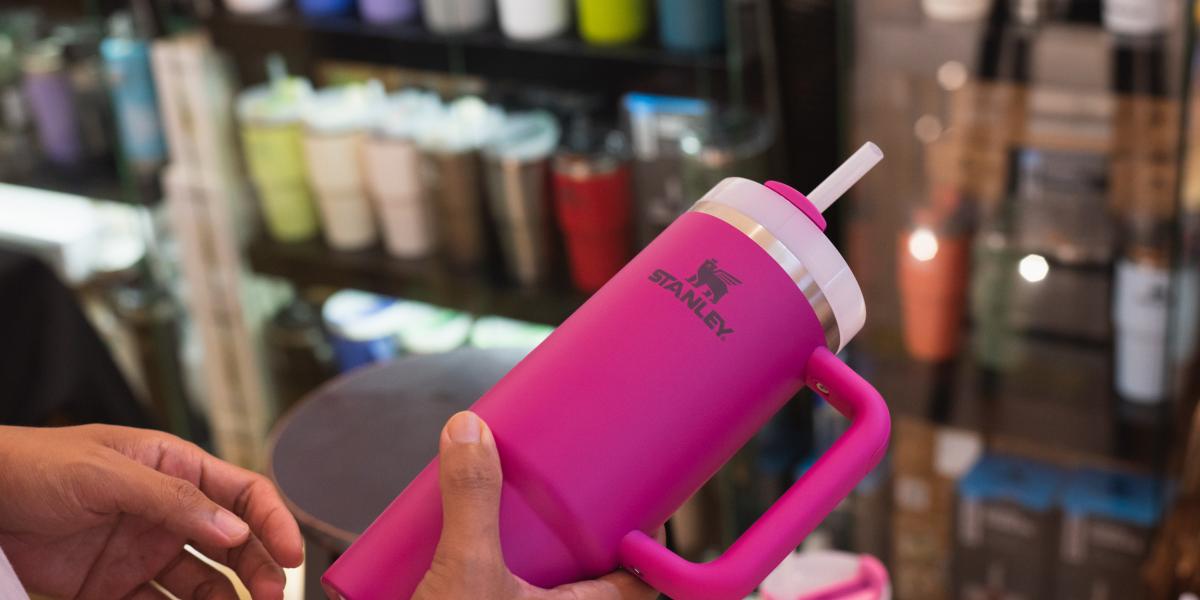You are here

(Editor’s Note: 3E is expanding news coverage to provide customers with insights into topics that enable a safer, more sustainable world by protecting people, safeguarding products, and helping businesses grow. Legal Brief articles, produced by the 3E News Team as well as external thought leaders such as attorneys, examine the laws, legal cases, and court decisions that help shape risk management and the use, manufacture, transport, and export/import of chemicals.)
The manufacturer of several popular vacuum-insulated stainless steel bottles and tumblers could find itself in hot water over mounting concerns about possible lead exposure.
A lawsuit alleges that Pacific Market International, LLC (PMI), the company that owns the Stanley brand of drinkware products, concealed the fact that its cups contained lead because of concerns that the information would affect the company’s bottom line.
The lawsuit, Brown, et al. v. Pacific Market International LLC, was filed in the Los Angeles County Superior Court by John Rushing and three other lawyers of the Santa Monica-based business law firm Rushing McCarl LLP. It is a putative class action suit filed on behalf of California consumers who bought Stanley cups without knowing that the products contained lead.
“Stanley’s manufacturer could have been honest with consumers about its use of lead in drinking cups,” Rushing said. “But that would have driven away the company’s core consumers: professional women of childbearing age. So, the company chose a full wallet over full disclosure.”
The popular beverage container became a viral social media sensation and a commercial hit, recording $750 million in sales in 2023. Concerns over the lead contained in the cups emerged after Instagram and TikTok users posted at-home lead tests on the cups. The results raised alarm bells among consumers, even though the test methods lacked scientific rigor and scrutiny.
Review
According to the lawsuit filing, the four named plaintiffs included professional women of childbearing age and two mothers with young children. Stanley’s social media marketing campaigns advertised the products as “BPA-free” and “safe.” The advertising misled consumers into believing that the manufacturer had disclosed all product materials. Although the plaintiffs have not been exposed to lead directly, they did acknowledge that they would not have purchased the Stanley products had they known the cups contained lead.
PMI’s website discloses that its products do contain lead. “Our manufacturing process currently employs the use of an industry standard pellet to seal the vacuum insulation at the base of our products; the sealing material includes some lead,” the company said in an article on its website. “Once sealed, this area is covered with a durable stainless steel layer, making it inaccessible to consumers. Rest assured that no lead is present on the surface of any Stanley product that comes into contact with the consumer nor the contents of the product.”
If the seal is exposed, it is eligible for Stanley’s lifetime warranty.
Companies manufacturing products intended for use in contact with foods sold in the U.S. must comply with the Federal Food, Drug, and Cosmetic Act and the food contact regulations of the Food and Drug Administration (FDA).
An FDA Spokesperson told 3E that, "The FDA is aware of the situation. The agency has not received reports of lead poisoning concerning these cups at this time. It is the responsibility of companies that manufacture products intended for use in contact with foods sold in the U.S. to comply with the FDA’s food contact regulations." As a general precaution, consumers should avoid drinking from broken or damaged cups. The FDA's Lead in Food and Foodwares provides more information. Information about the health effects of lead poisoning can be found by visiting the Centers for Disease Control and Prevention.
According to the Consumer Product Safety Commission (CPSC): “A component part is not accessible if: (1) it is not physically exposed by reason of a sealed covering or casing; and (2) does not become physically exposed through reasonably foreseeable use and abuse of the product.”
While regulators noted the dangers of lead exposure in Stanley products, they did not find evidence of any investigation confirming cases of damaged cups that caused the lead to be removed from their sealed compartments.
Analysis
A CPSC spokesperson told 3E that the agency sets limits for lead in children’s products.
“These restrictions apply to both lead in paint and the lead content levels,” said CPSC Press Secretary Patty Davis. “If CPSC finds a children’s product that contains violative levels of lead, the agency works to remove the product from the marketplace by working on a recall of that product with the company.”
Products similar to Stanley’s tumblers have been recalled previously. On 16 November 2022, China-based retailer LAOION had to recall 200 units of its 8-oz. stainless steel children’s cups due to a violation of the federal lead content ban.
(About the author: Stefan Modrich is a Washington, D.C.-based reporter for 3E. He covers the latest developments in environmental health and safety policy and regulation. Modrich previously wrote for S&P Global Market Intelligence, The Arizona Republic, and the Chicago Tribune. He is an alumnus of Arizona State University and the University of Zagreb).

 Top
Top